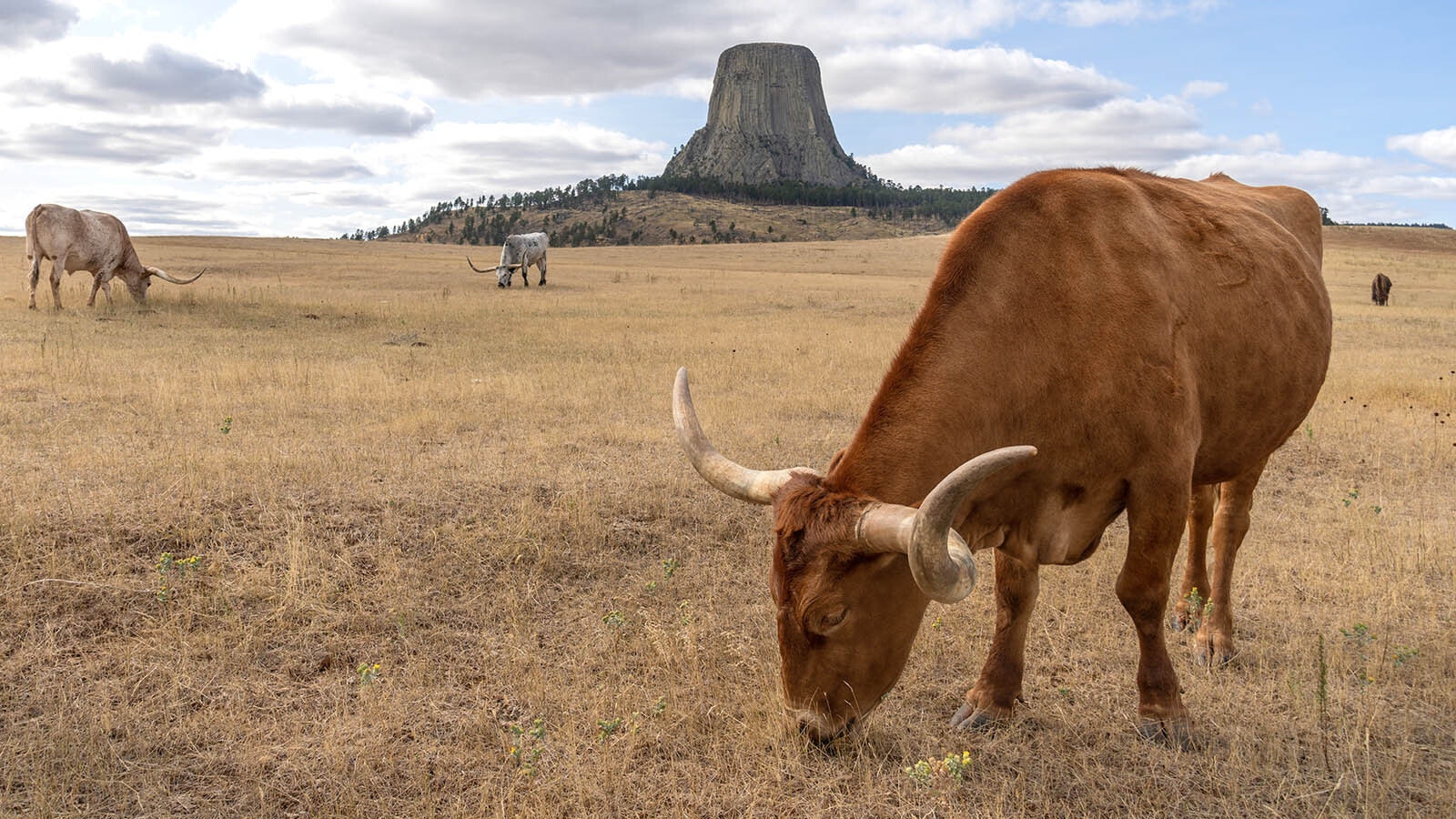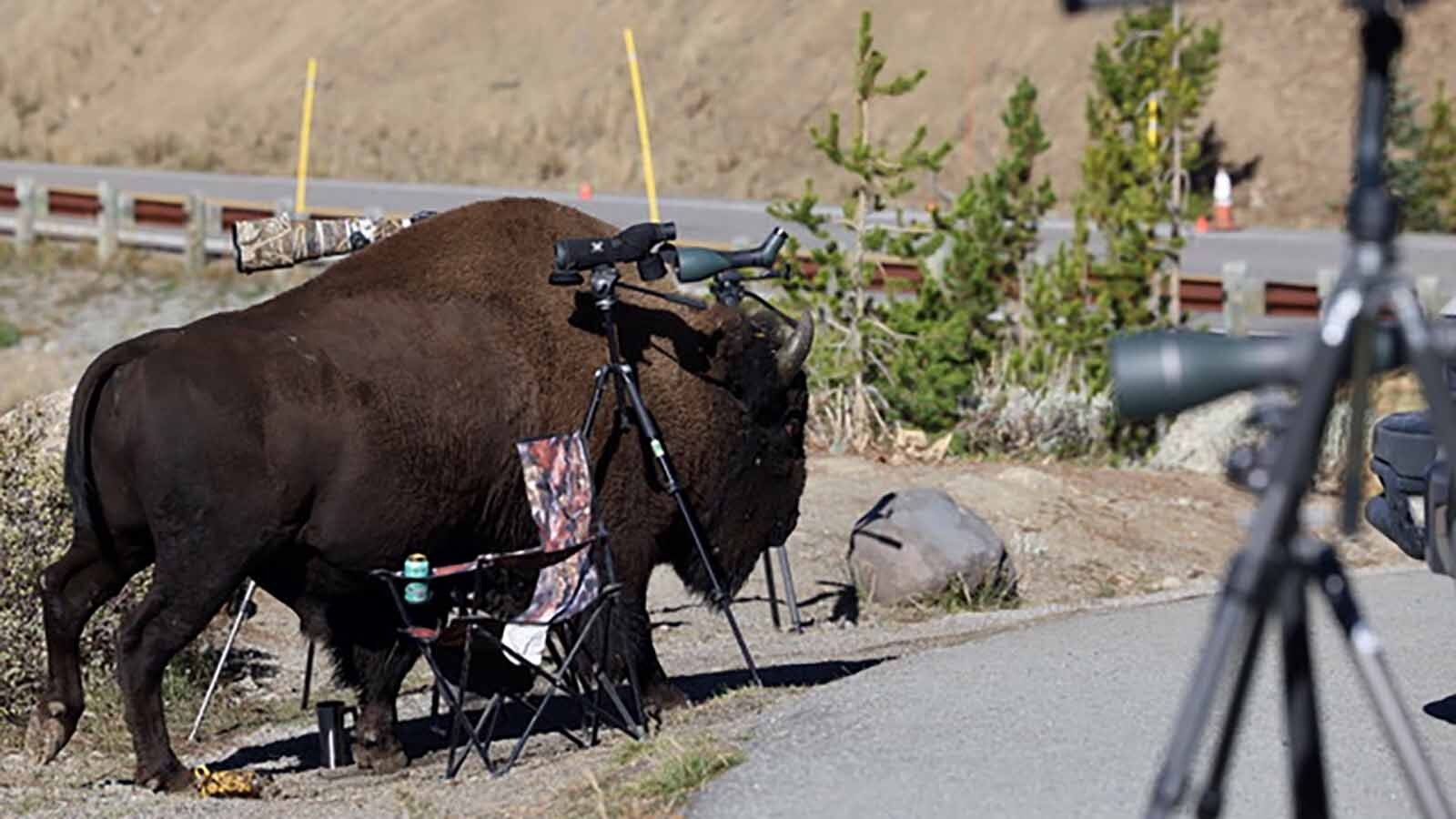Big Horn Mountain Farms in Buffalo was voted Wyoming’s best-tasting beef at last year’s annual Rendezvous City Beef Roundup in Riverton.
But if that farm wanted to sell some of its tasty, free-range, 100% organic, wagyu beef to Australia’s luxury, high-end market, it can’t get there from here.
That’s not because of any outright ban on American beef.
Instead, it’s a convoluted set of biosecurity rules that are keeping American beef away from the Australian market.
Australia only accepts U.S. beef if it can be proven that the beef was sourced from cattle born, raised and slaughtered in the United States. That’s an issue because many exporters also source beef born in Canada and Mexico for their operations.
Northern tier producers, in particular, may have cattle that cross the Canadian border multiple times.
America has been asking Australia for a while now to allow U.S. beef products that may have traveled legally to and from Mexico or Canada in America’s export stream, but to no avail.
The request is still “progressing,” according to Canadian officials — with no horizon in sight.
For President Donald Trump’s administration, it all amounts to a de facto ban on American beef by Australia, one that Trump called out as he was announcing his tariffs last week.
“Australia bans — and they’re wonderful people — but they ban American beef,” Trump said. “They won’t take any of our beef. They don’t want it because they don’t want it to affect their farmers, and, you know, I don’t blame them.
“But we’re doing the same thing right now, starting at midnight tonight.”
Some Yelling In The Senate
The situation is upsetting to Wyoming producers who want to sell their beef overseas to a lucrative market like Australia, U.S. Sen. John Barrasso told Cowboy State Daily.
Beef, he added, is the state’s No. 1 cash crop.
“Our Wyoming ranchers produce some of the highest quality American beef in the world, yet our beef faces significant barriers in key foreign markets,” he said. “They have felt the direct impact of unfair trade practices.
“Australian has sold $29 billion worth of beef in the U.S. and we haven’t been able to sell one hamburger in Australia. Our cattle producers are saying it’s about time.”
Barrasso had much the same thing to say in the Senate after a fiery dustup between Virginia Democratic U.S. Sen. Mark Warner — who was yelling at times — during a Senate Finance Committee hearing over the Trump administration’s April 2 tariffs.
On Wednesday, just before the hearing, Trump decided to pause some of his announced tariffs for 90 days, settling on a 10% across-the-board import tax rate for every country except China, whose rates Trump said will go up further, “to at least 125% immediately.”
U.S. Trade Rep. Jamieson Greer tried to answer Warner’s question about why Australia was still being hit with a 10% tariff despite the fact it is an ally and America has a trade surplus with it, saying that American beef and pork is effectively banned.
“We have a free trade agreement,” Warner interrupted, voice rising as Greer tried to continue speaking. “They are an incredibly important national security partner. Why were they whacked with a tariff?”
Greer tried again to explain, and Warner interrupted — still yelling — to say, “But with your Greek letter formula, the fact is we have a trade surplus.”
“We have a global tariff on everyone,” Greer responded. “We’re trying to address the $1.2 trillion deficit that Biden left us with, sir.”
“I think that answer … sir … you are a much smarter person than that answer,” Warner said.
Wyoming Producers Want Fairness
Wyoming Stock Growers Association Executive Vice President Jim Magagna, who is in Washington, D.C., and heard some of the exchange in person, said the producers he represents can relate to where the president is coming from on Australian beef.
The U.S. imported $3 billion worth of Australian beef last year, so the fact Australia appears to be turning up their nose at American beef with what he characterized as health and biosecurity excuses isn’t fair.
“I think (the tariff) says if you want to have good, easy access to our markets here, we expect the same of you,” Magagna said. “That’s whatever country we’re dealing with really.”
Magagna said American beef has faced challenges in other markets that aren’t playing fair, including China, and said he believes that the “back and forth” over tariffs could eventually evolve to the benefit of Wyoming’s beef producers.
“We’ve not had any signficant medical outbreaks (related to) Canada or Mexico,” he said. “And our beef, I mean, particularly Canada, we have so many cattle in the US, particularly in our northern states like Montana, that might be born in Montana, and some are in Canada, and some come back to be processed in Colorado.”
American producers, Magagna said, are well aware of mad cow and other disease risks, and have protocols in place to ensure no risks are being taken with that.
“We don’t take risks,” he said. “So the fact that our Canadian border has been very open as far as any restrictions on beef going back and forth — and the same with Mexico — we have confidence in the safety of that product. So we believe that Australia is just using that as an excuse.”
System Isn’t Favoring American Dinner Plates
Rancher Tyler McCann, who is the founder of the Rendezvous City Beef Roundup, isn’t sold on the whole present-day trading system, where U.S. meat is sold abroad, and Americans are essentially left with the lesser cuts of the beef world for their dinner plate.
“I’m a little bit of a contrarian on trade,” McCann said. “They’re buying our higher-price beef and shipping it elsewhere, and we make deals with them to bring in their lower price beef and sell it at our market price. It’s a touchy subject.
“I get that we need trade, but I’m not a huge fan of (exporting American beef.)”
That’s because he’d rather see those cuts on American dinner plates.
At the Roundup he hosts each year, he sees so many Americans who have never even tried American beef. That’s because what’s available at the grocery store, by and large, are cheaper cuts from places like Australia.
That’s a sad state of affairs, McCann said.
Trade is fine, but he said what he’d really like to see to even the playing field is transparent labeling so that Americans can make informed choices with how they spend their money.
“If consumers are purely shopping on price and are OK with that and know what they’re buying, by all means, I’m not going to stop (them,)” he said. “But if they are truly looking for the highest quality, safest, best-regulated beef, I would like for them to know that is really an American product that was formed and processed in America.”
McCann particularly dislikes the idea that beef that was born, raised and slaughtered in, say, Brazil, can arrive to America in 5-pound packages that get broken down into 1-pound packages and still get called a value-added product of America.
“That’s where my beef is,” he said. “No pun intended.”
PRIME Act Vs. Tariffs
Wyoming beef producer and Americans for Prosperity spokesman Tyler Lindholm, meanwhile, said he gets the angst over Australia boxing out American beef this way, but believes that tariffs are a ham-handed way to fix the situation.
“We’re not in favor of these kinds of trade wars because ultimately, all we end up with is everyone getting hurt,” he said. “Like, no one wins in this situation.
“We’re enacting tariffs to try and hurt the Australian economy so that our economy does better. But it never works out that way. Consumers always end up paying the price.”
Lindholm said what happens presently with trade is American producers export more expensive cuts of meat to foreign countries for a better deal on the market, while retailers import cheaper cuts of meat to provide Americans with cheaper options for steak.
“The American public is addicted to cheap protein,” Lindholm said. “And the reality is with Australian beef, you’re not going to get prime. You’re barely going to get choice, because those are southern breeds. They don’t grow fat content quite like Northern English breeds do.”
Tariffs ultimately short-circuit the mechanism where producers find the best price on the marketplace for their products, Lindholm said, and consumers find the best deals for their pocketbooks.
The better way to remedy things for American producers and consumers would be to enact the PRIME Act, he said.
“That would allow states to choose for themselves if they want to allow custom slaughter facilities to be able to retail beef,” Lindholm said. “That’s important because we have limited number of state and federal inspected facilities to slaughter beef. But we do not have a limited number of custom slaughter facilities. Those are all over the state.”
Enacting the PRIME Act, which has tried several times to make it through Congress, would put fresh Wyoming beef in every little town in the state of Wyoming for sale, Lindholm suggested.
That’s a win for consumers, who could get cheaper prices for better beef while supporting ranchers and butchers who are their neighbors.
And he believes it would substantially reduce the overall demand for sub-prime, cheap Australian cuts.
Renée Jean can be reached at renee@cowboystatedaily.com.





